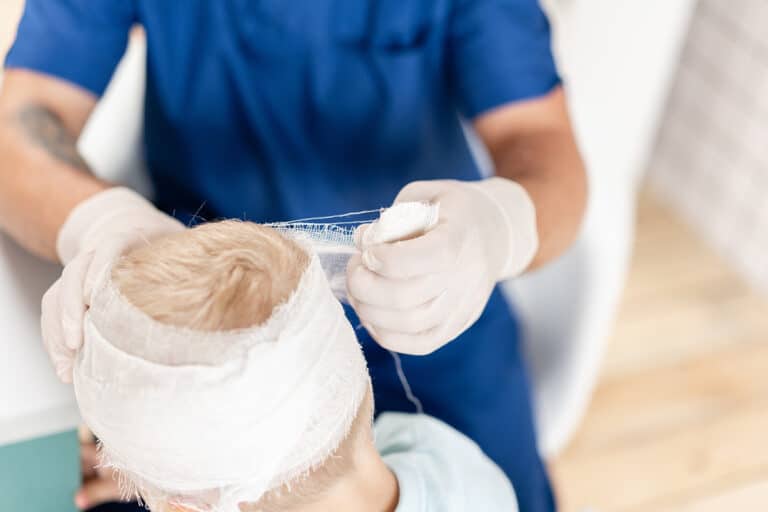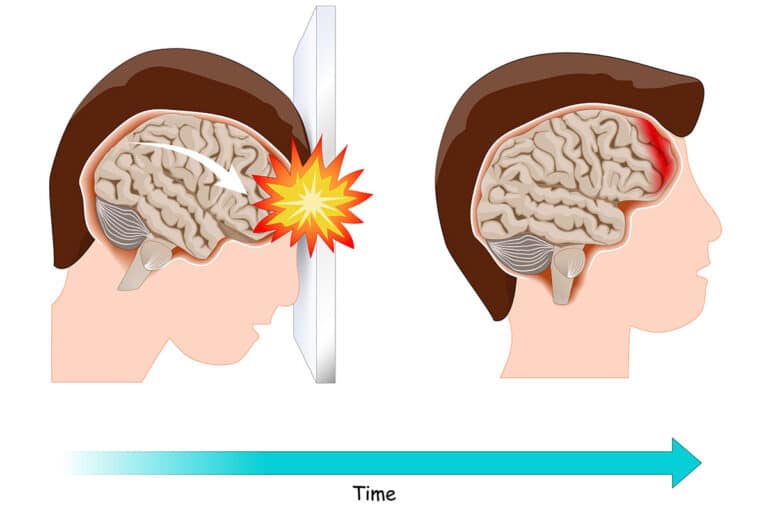Every year, children attend summer camps to participate in outdoor activities and sports. While most kids enjoy these camps safely and injury-free, outdoor activities can sometimes lead to injuries–including more serious traumatic brain injuries. Let’s explore how brain injuries can occur at summer camp, who may be liable, and what to do if your child is injured.
A Quick Look at the Data
Besides senior citizens, children and teens are both at the highest risk for sustaining traumatic brain injuries (TBI) in general. In the U.S., more than 600,000 kids aged 19 and under are treated each year in emergency rooms and hospitals for brain injuries. Summer camps are not necessarily considered high-risk for head injuries, but research shows a significant rate of injuries occur at summer camps primarily because of the high concentration of sports and other outdoor activities that children engage in daily while at camp. Some other interesting stats:
- 94 percent of brain injuries sustained at camp are identified as mild (e.g., mild concussion or suspected concussion)
- Basketball, soccer, and swimming account for 36 percent of all TBIs reported at camp
- Only 3 percent of children injured at summer camp are hospitalized or see a doctor for their head injury
Types of Brain Injuries that Occur at Summer Camp
Predictably, concussions are the most common brain injury that occurs at summer camp. They usually result from a blow to the head during contact sports. While many of these are mild and resolve on their own, they can lead to other complications if left untreated. This can including frequent headaches, fatigue, mood changes, blurred vision, and sleep problems.
Other, more serious types of brain injuries can occur at summer camp as well, such as:
- Hematoma: A hematoma is a blood clot that forms outside of the blood vessels. It can occur after a head injury when there is bleeding underneath the skull but no open wound on the surface of the head. Hematomas can be mild to life-threatening.
- Contusions: A contusion is a bruise on the brain that can happen when the head hits an object or surface. Contusions can cause bleeding and swelling of the brain inside the skull, sometimes requiring emergency treatment.
- Skull Fractures: A skull fracture is a break in one of the bones that make up the skull. Skull fractures can range from hairline cracks to more serious breaks that require surgery to repair.
Who May Be Liable if My Child is Injured at Summer Camp?
Parents and children naturally assume some risks at summer camp, which is why you are typically asked to sign a release form. However, there are times when brain injuries are preventable and occur due to acts of negligence or oversight by the camp staff. For example, it can occur if proper safety protocols are not in place or if kids are left unsupervised. Other times, the camp may be liable if your child was not given medical treatment and developed complications afterward. An example is if a blow to the head was a concussion but the staff decided your child was uninjured. In these cases, the camp or camp staff may be held liable for the child’s injuries.
That said, proving liability for a camp brain injury is not cut-and-dried. Was your child injured at summer camp due to negligence? An experienced personal injury attorney is the best person to help you hold the camp accountable and get proper compensation for your child’s treatment. Call our law office to discuss your case.








